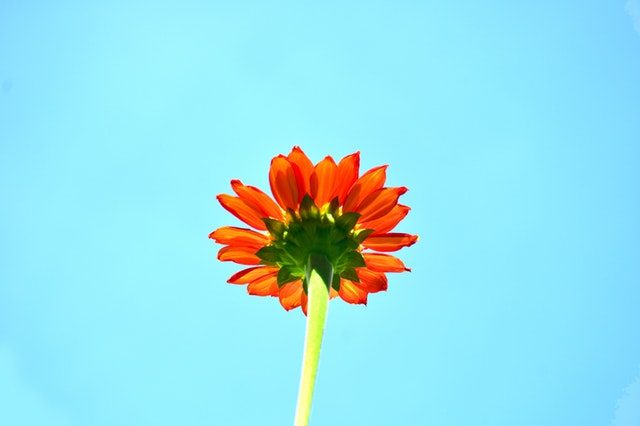The world we live in today faces us with more comparing than ever. We feel that we have more insight into what others’ lives look like. We’re more connected with those who are close to us. And our ability to connect can also mean never feeling like we leave work. Technology, among many other factors existing for prolonged periods in our society, can very easily be sources of negativity. You could be in the midst of a tough situation that doesn’t have a clear end. That could be financial trouble, relationship stress, a heavy workload, and more. And while gratitude may not solve all these problems, it can alleviate your stress and make navigating those problems easier.
How is this true? Gratefulness as a whole has a diverse range of benefits that can lead to handling problems better. This Forbes article lists some of the benefits – including improved empathy, physical and mental health, and interpersonal relationships. One point demonstrates that those who practice gratitude regularly are less likely to retaliate in stressful situations with negative people. Instead, they respond with more empathy and understanding of the situation.
So how can we implement these practices into our everyday lives? Here are some ways to do so:
Make it a habit.
Don’t wait until you’re stuck in a deep situation to practice gratitude. The regular practice of positive affirmations can help you when the smallest of thoughts or happenings put you down. Plus, it’s the outlook on life in general where gratefulness can be incredibly beneficial.
Decide how and when you want to practice gratitude daily. Some things you may not be able to do every day, but the regular practice of affirmations and recording what you’re thankful for can be done as part of a routine. Decide when that will be for you and turn it into a habit. You may decide to meditate every morning or journal before bed. Decide what will work best for you.
Practice positive affirmations.
An affirmation is a positive, present-tense thought that, when repeated, can benefit in some way. Affirmations exist for confidence and self-esteem, happiness, gratitude, love, finance, and others. Create a list of affirmations, or find inspiration online for those most relevant to your life.
I personally like using affirmations because it helps me bring to light personal goals that I’m working towards. Putting your feelings and personal needs into words has been a great first step towards self-improvement, and I believe these affirmations can be very powerful from the start.
Volunteer.
The college I went to placed a heavy emphasis on giving back to the community and serving others who have less than you. This was a huge eye-opener to me as it gave me the perspective of how much I truly have.
My college’s tradition during first-year orientation is to conduct a community-wide day of service. Each first-year seminar course went to a different place in our community and spent the day volunteering. My first-year class went to an elementary school for children below the poverty line.
When our bus to the school got closer, I noticed how unkempt the homes were. Many of them suffered structural damage, and most had their windows boarded up. Weeds and other plant matter covered the walls. These houses looked like they were all condemned, but they weren’t.
Shortly after arriving, we were broken up into groups and assigned jobs. Some organized donated materials, some painted the walls, some cleaned the windows, and others cleaned up the exterior. I was in a group that, of all things, tore out pages from textbooks and organized them into folders by section. For each section of the book, I ripped out those pages from every textbook and put them in a folder. I went as far as I could go before time was up.
Later on, I was talking about my experience with my peer mentor, who was a senior that helped us throughout our first semester. I told her that I felt like I didn’t do enough to help. I didn’t understand what I could have possibly accomplished by ripping pages from a textbook.
She explained to me that many students there didn’t have a set home, and would have to go to a new place every night. Sometimes, when getting to the next place, the kids would forget their textbooks and couldn’t go back. They’d come to school the next day crying because they cared so much about their books and didn’t want to be without them. So the teachers would give them just the pages they needed each night instead – but they needed lots of help to get all the pages out.
Kid me would have never cared about a workbook like that because I had everything I needed. But school mattered so much to these kids because they’d get so much love and care. The school would even send home pre-prepared food and snacks over the weekend to the kids who wouldn’t have an adult around to help feed them. For those kids, school means a lot to them.
The first day of school, my professor got a phone call from the school. When the students came in, they started crying, because the windows were clean. Why? Because those windows have been very dirty, and at home, they have wood boards for windows, and live in the dark.
All these little things these kids and the school faculty and staff reacted to, I always took for granted. This experience was life-changing for me. Throughout my time at school, I kept on volunteering and opening my eyes to all the things I had and all the things I could help make better for others. Whenever I’m feeling down, I think about those kids and what they’ve been through. Experiences like these can really be an eye-opener to what you have and how the smallest things help you in your day-to-day life. Not only that, but you’re making a huge difference in someone’s life – even by doing the smallest thing.
Keep a gratitude journal.
Or write a few lines in your planner, on a post-it, your computer, or wherever you want. Start with three things you are grateful for in that moment, or during that day. Figuring these things out at first can be hard. But eventually, you will adjust to thinking about all the things in your life that bring you happiness, big or small.
I believe that there are two key benefits to this practice.
For one, it forces you to think about the little things. Around times like Thanksgiving, we say what we are thankful for, but they tend to have a common theme, or we are not in a place to really air our all the things we couldn’t live about. Having a personal space to record these things lets you think about the little things without worrying about how to phrase yourself. It’s your space to talk about how you’re grateful for something that we tend to expect.
It’s also a place where you can elaborate on the things that we often say we are thankful for, like our friends or family, the home that we live in, or the food on the table. You can say you are thankful for your friends, but in your journal you can say how your friend made you feel so loved today, and how happy you are to have them in your life.
Turn undesired thoughts and situations around.
I learned this one from one of Gretchen Rubin’s podcasts that she does with her sister. They were talking about how to stay happy during the stress of the holidays, and this tip came up. They gave the example of being annoyed by the long trip to see their relatives. But instead of this notion, they turned it around to say “I’m so grateful that I can travel and go see my relatives this holiday.”
This is something that I turned into a habit and began to practice with things big or small. Perhaps you may not feel so inclined towards the more positive thought at the moment, but putting yourself through that thought process can create a good habit.
I most recently had to do this last week. It’s late March as I’m writing this, and this past month we got four Nor’easters. Everyone just wanted it to stop, Spring was coming, Daylight Savings already started and we all just had enough. But once the snow started falling, I watched and thought to myself, “Y’know, when I saw the first snowfall of the season, I was really happy.” And yes, I really did pretend that it was early December again, and that I was looking forward to my first Northern Winter since before I left for college. And you know what? It helped a lot, even if I really would prefer for it to be sunny and warm again.
Be sure to give this one a try. You’ll catch how many times you think negatively throughout the day, and learn quite a bit about your thought process as a result.
Say thank you.
To strangers that help you, to people in retail or food service, to your loved ones, and everyone, even for the smallest things. The smallest act of thanks can bring happiness to both parties.
Tell your loved ones how much you appreciate them. Give them a specific reason why you’re thankful for them. Write a card to someone far away. Tell someone you were thinking of them. These little things can mean so much.
Try not to complain.
Be grateful instead. When I made this change, I think it benefitted me in so many ways. I was more equipped to deal with problems and I didn’t add layers of negativity and complexity to whatever I was facing. Plus, I think complaining prolongs the issues you’re facing.
I also started to notice the people in my life who were constantly complaining about every little thing. Everyone around would just get frustrated by having to listen to someone else “whining and moaning” about something that really wasn’t that bad. It slowly took more and more for me to not come back with how much I was dealing with at the time, and I did not want to be that person.
But sometimes you need to let these things out and talk to someone, and that’s okay. When I needed to talk someone, I would usually follow with, “I know this probably isn’t that big of a deal. I guess I’m just really frustrated.” I think that helped others understand where you’re coming from so they can be better equipped to help you when you need it. It’s also a way to show appreciation that you have their shoulder to lean on when you need it.
Appreciate nature.
Technology is good in a lot of ways, but many times, it’s a stressor. We also have a tendency to get outside less, but there’s so much about the outside world to explore and enjoy.
Enter your yard. Go to the beach, garden, or park. Visit a walking trail. Take a look around and appreciate its beauty, its wonder. Stargaze. Look at how vast the ocean is, and ponder about who we all are in the grand scheme of things.
When I get stressed, I always take some time with nature, oftentimes when at school walking by the lake. That time alone was time for me to think and rationalize what was going on. Not only that, but I also found beauty in the simplicity and complexity of the natural world.
But how does this relate to gratitude? For me, it’s a way of reconnecting with myself and my purpose. That time alone in nature helps me think about how big or small some things are in our life. In nature, I don’t feel nearly as big. Oftentimes, I feel alarmingly small. But that also teaches me that that’s okay.
Practicing gratitude regular has made many big changes in my life, and I believe that’s what started my path of self-improvement as a whole after I saw its effects. If you’re looking to get started or just improve, I hope these tips help you on your way. What do you do to practice gratitude? Do you already practice in any of the above ways? Let me know below.
Sincerely,
Julie Anna








I wish more schools worked with their communities to teach the value of volunteer work. I wish they would start at a young age too. Volunteering has so many benefits. I love the tip about nature. So relaxing. Thanks for sharing!
Definitely – there are so many opportunities to make a difference in our communities, even as kids. I knew my college placed a large emphasis on community engagement going in, but those experiences ended up being life-changing. I’m glad you liked it!